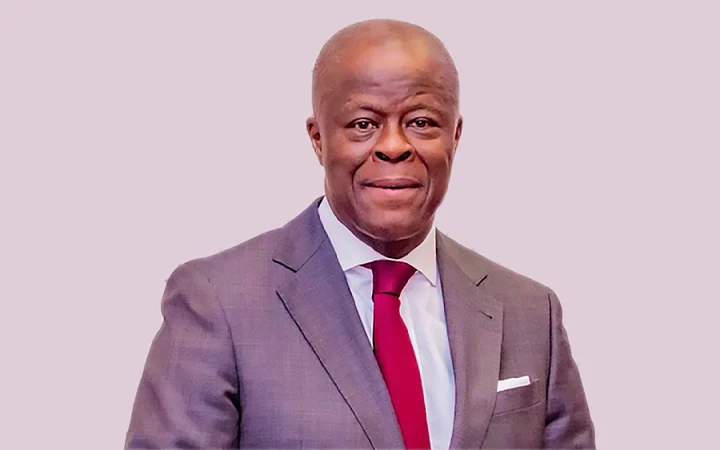Nigeria’s Minister of Finance and Coordinating Minister of the Economy, Wale Edun, has stated that structural inefficiencies are the major obstacles delaying the direct transfer of funds to local government areas (LGAs) across the country. His remarks come in the wake of a Supreme Court ruling reinforcing the autonomy of LGAs and mandating direct financial allocations to them from the Federation Account.
Speaking at a policy forum in Abuja, Edun emphasized that the federal government remains committed to the implementation of the court’s ruling. However, he acknowledged that the process requires extensive adjustments to Nigeria’s current public finance system, which has historically routed LGA funds through state governments.

According to the minister, the existing model has entrenched administrative and operational dependencies between state and local governments, especially in the delivery of services like primary healthcare, basic education, and infrastructure. These services have long been coordinated at the state level, creating a system where LGAs depend on state ministries and agencies for both funding and execution.
“Implementing direct transfers is not simply a matter of changing the route of money,” Edun said. “It involves realigning decades of administrative structures that are deeply embedded in our governance framework.”
He noted that while the government has already taken steps to block allocations to unelected local councils—another core part of the Supreme Court directive—the implementation of direct financial transfers will take time and careful planning. He emphasized the importance of ensuring that LGAs are properly equipped, both institutionally and technically, to manage their own funds effectively.
Edun argued that local government autonomy is crucial to achieving the federal government’s development agenda, particularly President Bola Tinubu’s Renewed Hope vision, which prioritizes inclusive economic growth and grassroots development. He stated that empowering LGAs financially would bring governance closer to the people and ensure that essential services are delivered more efficiently and transparently.
“There is no doubt that the future of national development lies at the grassroots,” he said. “But we must ensure that local governments are prepared for the responsibilities that come with financial independence.”
Stakeholders at the forum echoed the minister’s sentiments, with many pointing out the urgent need for capacity-building and institutional reforms at the LGA level. Without trained personnel, proper financial controls, and accountability systems in place, experts warn that direct transfers may not yield the desired results and could even lead to misuse of public funds.
Some participants also raised concerns about political interference, especially in states where governors have historically wielded significant influence over local governments. They called for clear legal frameworks and oversight mechanisms to safeguard the independence of LGAs and ensure that funds are used strictly for developmental purposes.
In response, Edun assured that the federal government is working closely with stakeholders to design a roadmap that will guide the implementation process. This includes consultations with the Revenue Mobilization, Allocation and Fiscal Commission (RMAFC), the Nigerian Governors Forum (NGF), and development partners to streamline funding models and eliminate inefficiencies.
He also mentioned ongoing efforts to harmonize service delivery responsibilities between the three tiers of government, with the goal of reducing overlap and ensuring a more coherent public administration system. “We are not just talking about sending money; we are talking about reforming an entire ecosystem,” Edun said.
Meanwhile, the Ministry of Finance is reported to be developing training programs aimed at strengthening financial management skills among local government officials. These programs will cover budget planning, auditing, procurement, and project implementation.
Several civil society organizations and advocacy groups have welcomed the government’s approach, describing it as a long-overdue move that could enhance transparency and accountability in governance. They, however, urged the government to act with urgency, warning that continued delays in implementing direct transfers undermine the spirit of the Supreme Court judgment.
Observers also noted that full financial autonomy for LGAs could boost local economies by enabling targeted investments in education, healthcare, infrastructure, and social services. In rural communities, where poverty levels are highest, the impact of such development could be transformative.
As discussions continue, expectations are high that the government will roll out a clear implementation timeline for the reforms. Edun reiterated the administration’s resolve to ensure that local governments play their rightful role in national development, stating that the path to prosperity begins at the grassroots.
In conclusion, while structural challenges may delay the full implementation of direct financial transfers to Nigeria’s 774 local government areas, the federal government’s commitment to reform remains strong. According to Wale Edun, with coordinated effort, institutional strengthening, and political will, the vision of a financially autonomous local government system is both achievable and essential to Nigeria’s long-term growth.
Support InfoStride News' Credible Journalism: Only credible journalism can guarantee a fair, accountable and transparent society, including democracy and government. It involves a lot of efforts and money. We need your support. Click here to Donate
